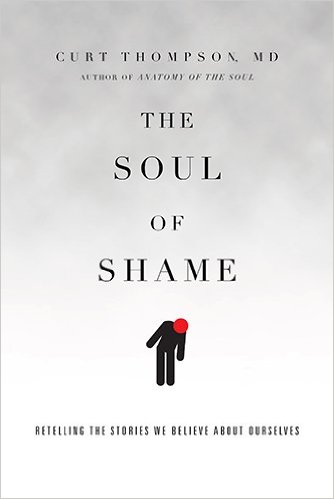
I don’t think anyone is a stranger to loneliness, especially in times such as these. Loneliness has plagued my life. And that is probably evident now by much of what I’ve written on this blog. It has always been there scratching away at the inner recesses of my heart, and throughout the years I have found it to be an uncanny companion. The words of Soren Kierkegaard seem to do it justice:
“Deep within every human being there still lives the anxiety over the possibility of being alone in the world, forgotten by God, overlooked among the millions and millions in this enormous household. One keeps this anxiety at a distance by looking at the many round about who are related to him as kin and friends, but the anxiety is still there, nevertheless, and one hardly dares think of how he would feel if all this were taken away.”[1]
In times such as these, the loneliness of life is a difficult thing to keep at bay. For some of us, we are locked at home alone, for those more fortunate we may have friends or immediate family to keep us company, but the reality of our situation is that we have been stripped away from many of our “kin and friends.” Most of us long to be back at work, to be back with friends and teachers, to embrace and be embraced by those in our community, and to be taking the Lord’s Supper together again. Our lives and routines have been violently disrupted. Our coping mechanisms have been altered. And this time for many of us, I imagine, has awoken an old and frightening loneliness.
I was reminded recently in a friend’s newsletter of the distinction between solitude and loneliness,[2] the former being a good thing that we can cultivate out of the rough soil of loneliness. Similarly, Henri Nouwen in his journal confronting the most despairing year of his life wrote that there are two temptations in the spiritual task of addressing loneliness that “you are inclined either to run away from your loneliness or to dwell in it.” And that “when you run away from it, your loneliness does not really diminish, [but] when you start dwelling in it, your feelings only become stronger, and you slip into depression.” To avoid despair in these feelings while avoiding escapism is no easy task, but we will all in some shape or form be forced to reckon with them eventually.
The cultivation of solitude is a task that we all must learn quickly. Hannah Arendt wrote that “solitude is that human situation in which I keep myself company. [While] Loneliness comes about … when I am one and without company’ but desire it and cannot find it.”[3] Now more than ever, we must learn how to cultivate our loneliness especially for those of us who find ourselves without company right now. Doing the hard work of this cultivation may help us retain our sanity now while it may also help us find a newfound equilibrium on the other side of this quarantine—one we did not know before.
Nouwen likened the wound of loneliness to “the Grand Canyon—a deep incision in the surface of our existence…” All of us know that in some capacity, we are not as known as we would like to be nor as loved as we would like to be. If loneliness is simply the desire for intimacy, all of us should be familiar with this wound. We feel an emptiness that we would like fulfilled entirely. We want the incision filled, and there is something deeply right about that longing.
We have all been created for companionship. We were intended to live life alongside others in friendship and family and community. And it is in companionship that some of us may feel the most alone. That which was given to us to be a salve for our loneliness can often be the very thing which provokes it the most. Sometimes we feel this most profoundly when we lose someone, whether temporarily or permanently. Sometimes we feel this most insidiously in a bad marriage or toxic friendship. We have an idea of what the fulfillment of intimacy may look like, and to see it not achieved is the realization of loneliness. Neither single people nor married people are immune to the sting of loneliness—though we both may feel it differently. And right now is a time for many of us in which we feel this sting profoundly.
For Thomas Merton, there is a companionship that should precede natural companionship. Rather than Arendt’s summation that solitude is a companionship with the self, for Merton the goal of solitude is different for it is only the man or woman “who learns, in solitude and recollection, to be at peace with his own loneliness, and to prefer its reality to the illusion of merely natural companionship, comes to know the invisible companionship of God.”[4] The Christian life does not eliminate loneliness. Rather, as Christians, we may be those most fitted to endure it honestly and begin the painful work of cultivating it into something promising.
One of my favorite passages in Scripture is Jesus’s promising of the Holy Spirit to his disciples. He tells them “I will ask the Father and he will give you another Helper, to be with you forever… You know him, for he dwells with you and will be in you. I will not leave you as orphans; I will come to you” (John 16,18). I am reminded in this passage that even as those who wait for our Savior’s return, we are not left wholly alone. We have for ourselves an invisible companionship through the presence of the Spirit, and sometimes it is only when we are alone (whether by choice or consequence) that we are reminded of it.
Rather than ridding ourselves of loneliness, the path to solitude at very least must begin with addressing our loneliness. And for many of us who have spent a good deal of our lives doing as much as we could do avoid it, this may be the hardest step. This is a scary thing because it often requires us to come to terms with much of what we have stowed away within ourselves and to deal with the thoughts we would rather not think about. Frankly, I don’t want to be alone with myself like Arendt imagines, I do not make a good conversation partner with myself. But I do know I need to be alone at times. I need to confront my own thoughts and feelings and to bring my sad and sometimes scary thoughts to the one who knows them and can console me before I can utter them. And I want to be honest.
There is a loneliness that can destroy us, but there is a loneliness that can be cultivated and made into something of worth. This cultivated solitude may bring about greater creativity in our lives, it may help us be less insecure in our relationships, and it may help us to grow more intimately aware of the Spirit’s intimate workings within us. I don’t want to pretend that for some of us now this will be an easy task, it may take baby-steps for some while for others we may be thrust into it without any say in the matter. During these strange and scary times, I want to remind myself and you all, wherever you are at, that you are not wholly alone in this world no matter how isolated you may feel now. And I pray that we would all come to know and be reminded, especially on this Good Friday, that we have one who knows our loneliness and will not leave us alone in it.
Vito Aiuto of The Welcome Wagon puts it better than I ever could:
Up on a mountain our Lord is alone
Without a family friends or a home
He cries
Will you stay with me?
He cries oh oh oh
Will you wait with me?Up on a mountain our Lord is afraid
Carrying all the mistakes we have made
And he knew
It’s a long way down
Do you know?
It’s a long way downUp in the heavens our Lord prays for you
He sent his spirit to carry us through
So it’s true
That you’re not alone
Do you know?
He came all the way down
Be well friends,
Jeb
[1] Journals VII 1A 363
[2] https://theconvivialsociety.substack.com/p/the-convivial-society-vol-1-no-6?r=3ezfo&utm_campaign=post&utm_medium=web&utm_source=copy
[3] Taken from https://aeon.co/ideas/before-you-can-be-with-others-first-learn-to-be-alone
[4] Thomas Merton, No Man is an Island.


